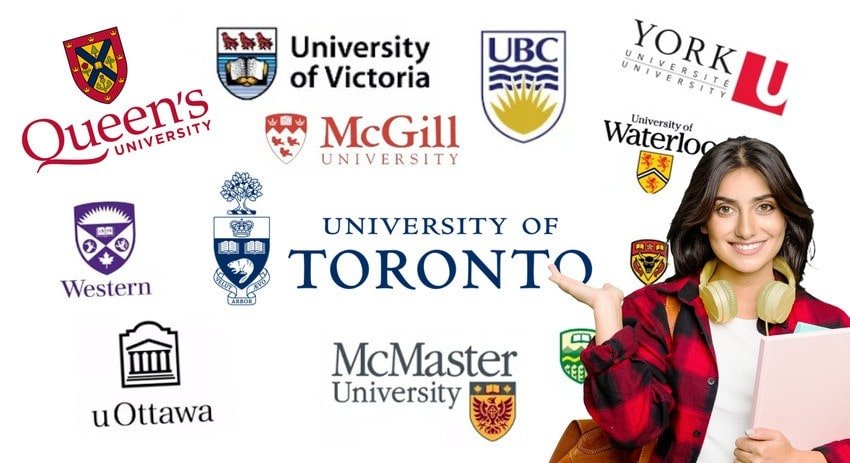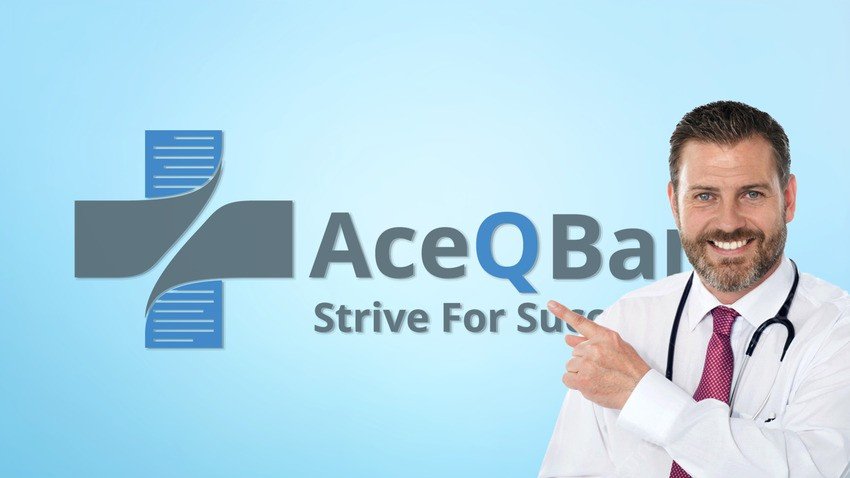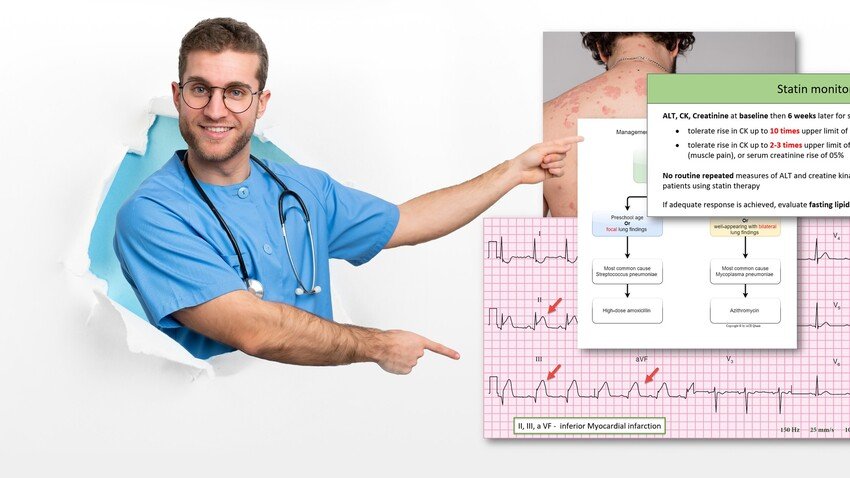The Ultimate Guide to Becoming a Doctor in 2026

Becoming a doctor is a dream many of us share. But not that many people actually make it. For those who succeed, the rewards are clear. A stable indoor career, lower risk compared to many professions and a salary that ranks among the highest.
A couple of months ago, I dove into the topic of doctor salaries in Canada. I highlighted how physicians with sterling reputations and streamlined practices are truly living the dream. Now, with the rise of private clinics on the horizon. The opportunities for Canadian doctors are expanding even further.
But how does one actually become a doctor in Canada? This post will walk you through the entire process. Along the way, I will highlight the significance of each step. Plus, we’ll explore how resources like Ace QBank can be game-changers on your journey to becoming a physician in Canada.
How to Become a Doctor in Canada in 2026?
Becoming a doctor in Canada takes grit, persistence and real purpose. From your first interest in science to wearing the white coat. Each step tests your passion for helping others.
You will face late-night studying, early lectures and hands-on learning that push you. Push you beyond your comfort zone.
This journey demands disciplined study, resilience to learn from mistakes and readiness to tackle tough exams and countless clinic hours.
Let me be clear. Nothing I’ve written here would ruffle your feathers. Medicine, for me, stands as the single greatest stroke of fortune in my life’s journey.
If offered a second chance, to relive it all. I wouldn’t hesitate for a moment. In fact, this time around, you’d find me committed with renewed purpose. The first to arrive in that cavernous lecture hall. Hungry for every fragment of knowledge.
Challenging exam on the horizon? I’d welcome it. Each tough test, every late-night study session. They all help me piece together the puzzle that is medicine.
Medicine is about connecting the dots, building a solid foundation and climbing higher. Whether you are dreaming of becoming a surgeon, an anesthesiologist or a standout internist. These challenges shape you into the doctor people trust.
A strong reputation in medicine isn’t just for the bragging rights. It means your clinic fills up fast. Patients want to see you. And yes, let’s be real. There is a financial reward for all that hard work and dedication.
You don’t hear folks talk about it like this every day, do you? Now, let’s roll up our sleeves and dive into what it actually takes to become a doctor here in Canada.
Here’s the roadmap. Straight from someone who loved it and would do it all over again.
The 4 Essential Steps to Becoming a Doctor in Canada

Canada’s pathway to practicing medicine is famously rigorous. And for good reason. The process is designed to ensure aspiring doctors possess not just academic excellence.
However, both personal and professional skills are necessary to deliver high-quality care. Let’s go through the steps:
4 Steps to Become a Doctor in Canada | |
Undergraduate Education |
|
Medical School |
|
Residency |
|
Licensure |
|
The starting line is your undergraduate degree, typically in science. Think biology or chemistry. While some schools do accept students from broader academic backgrounds. The competition is fierce and strong grades matter.
According to the Association of Faculties of Medicine of Canada, successful applicants. Were those applicants who averaged a GPA of 3.8.
Despite the fact that prerequisite courses in subjects such as organic chemistry and biochemistry are required and non-negotiable. The whole process isn’t just academic.
The Medical College Admission Test (MCAT) is next on your checklist. A standout MCAT score can be a game-changer.
Most Canadian medical schools look for scores in the 125+ range per section. And admissions teams want to see more than numbers. They want evidence of leadership, commitment and heart.
That means volunteer work and extracurricular activities. Activities that show compassion and initiative. These can tip the scales in your favour.
Once accepted, med school is an intensive four-year commitment. You first start studying foundational sciences and then progress to clinical rotations.
In clinical rotations, you gain hands-on experience in hospitals. Here, you are not just learning medicine. You are learning to think like a physician. During this stage, you get a real boots-on-the-ground and also feel for the different fields of medicine.
It is here in the thick of those demanding rotations and unpredictable shifts. Where you truly discover which specialty speaks to you.
Needless to say, graduating isn’t the finish line. There is a licensing exam administered by the Medical Council of Canada (MCC), the MCCQE1 exam. After passing the exam and obtaining the LMCC (Licentiate of the Medical Council of Canada).
Then you should apply for matching into a residency through the Canadian Resident Matching Service (CaRMS). After entering your desired residency program.
You should complete your residency training. Residency programs range from two to seven years depending on your specialty. For instance, family medicine is on the shorter end; surgery and other specialties take longer.
However, once you enter residency. Your plate gets a whole lot fuller. The workload ramps up fast. And suddenly you are juggling new responsibilities every single shift.
The good news is that you will actually get paid for those long hours and late nights. All while you are still learning under the watchful eyes of experienced supervisors.
Finally, there’s one more licensing exam specific to your specialty. After passing the exam you will receive a certificate from one of Canada’s leading regulatory bodies. The Royal College of Physicians and Surgeons of Canada, the College of Family Physicians of Canada. Or for those practicing in Quebec from the Collège des médecins du Québec.
While this journey isn’t quick or easy. It is meticulously designed for a reason. To ensure every doctor in Canada meets the highest professional standards.
Completing an Undergraduate Degree with Pride

You can’t leapfrog straight from high school to the halls of Canadian medical schools. Canadian med schools set the bar higher and for good reason.
Nearly all require at least three years of undergraduate study. With the majority of hopeful applicants completing an entire Bachelor’s degree. Before even considering an MD application.
You may wonder what’s behind this requirement? Med schools want you to build a rock-solid academic foundation. That means your undergraduate experience matters.
Strong fundamental knowledge in sciences such as biology and chemistry is essential. In fact, some admission statistics show that the majority of Canadian med school entrants have earned full degrees in science-related fields.
But don’t let that box you in. Canadian schools have evolved. They will consider a variety of undergraduate degrees. As long as you’ve checked the right prerequisite boxes.
Beyond your undergraduate degree. Admission teams are looking at your GPA and MCAT scores.
For example, the University of Toronto expects a minimum undergraduate GPA of 3.6. And many other programs set similar expectations. As for the MCAT, you are aiming for at least 125 in each section for competitive programs.
But let’s be honest, grades and scores only get your foot in the door. Numbers alone won’t secure your seat.
Canadian med schools want the whole package. They are looking for evidence of resilience, curiosity and compassion. That means you should be investing your time in leadership roles, community experiences and research projects.
According to the Association of Faculties of Medicine of Canada. Schools assess not just your academic record. But also your personal characteristics and experiences. The very things that make you more than just a number.
So how do you choose the “right” undergraduate program? Pick something that excites you. Pick an undergrad program that sets you up for high achievement. Yes, you will want classes that prep you for the MCAT and contribute to a strong GPA.
Note
McGill University’s Faculty of Medicine and Health Sciences. No longer requires the MCAT for applicants who have completed their bachelor’s degree outside Canada. Starting from the 2024 admission cycle
The best results come when you are passionate about what you are learning. If you are truly interested in your program. You are more likely to stay motivated. Dive deeper and earn higher grades.
And let’s not forget. The best med school candidates are well-rounded. Choose a degree that gives you the time and flexibility to get involved.
Whether that means joining a research lab or volunteering in your community. Doing so shows you care about your undergraduate studies. You will not only enjoy the process more. But also present yourself well on applications.
Top Tips for Choosing the Best Medical School in Canada

Choosing the right medical school isn’t just a big decision. For aspiring physicians in Canada. It is the foundational choice that shapes your entire career trajectory. With 17 accredited medical schools across this vast nation.
With each med school offers unique strengths and unparalleled opportunities. It can be difficult to determine which school aligns with your learning style. You need to focus your evaluation on four critical factors.
Here is the list of factors to consider when choosing the right medical school in Canada:
- Accreditation and Reputation
- Admission Requirements
- Curriculum Style
- Opportunities for Research Specialization
Let’s break down the critical factors you absolutely must consider.

- Accreditation and Reputation
Every Canadian med school is rigorously accredited by the Committee on Accreditation of Canadian Medical Schools (CACMS).
This means regardless of where you go. You are guaranteed a high standard of education. preparing you to become a competent, Period.
However, it’s naive to ignore the subtle yet significant role reputation plays. Schools like the University of Toronto, McGill and the UBC.
These are undeniably global powerhouses. Their names are resonating in international research circles and highly competitive residency matches.
While every Canadian school will provide a robust foundation for your medical career. A school’s specialized reputation can offer a distinct edge. Particularly if you are eyeing specific research streams or highly competitive subspecialties.
- Admission Requirements
Here’s where the rubber truly meets the road, so to speak. Admission requirements are far from uniform.
Each institution has its own intricate web of prerequisites. Minimum GPA thresholds and MCAT score expectations (and yes, some Quebec schools notably don’t require the MCAT!).
Beyond academic metrics, brace yourself for diverse application processes. From the ethical situational judgment of CASPer to the dynamic problem-solving demanded by Multiple Mini Interviews (MMIs).
You probably heard “Research all school’s unique requirements thoroughly.” This strategy is wasting time as there are tons of information to go through.
Of course, everyone’s approach is different. Some people might prefer casting a wide net. Applying to as many schools as possible. Others might focus on a few select schools. Schools that align closely with their career goals and personal circumstances.
Both ways have good points. Applying to many places might help you get accepted. But handling many applications can be difficult.
However, your approach should be thorough. Instead, choose the schools where you know you have a good chance at. Then, carefully research each school’s specific requirements. This is how you position yourself as the strongest possible candidate.
- Curriculum Style
The question “How do you learn best?” isn’t just an afterthought. It’s the heartbeat of your journey. No one understands your learning habits better than you. That self-awareness is important here.
When you stand at the crossroads of choosing a medical school. Consider how each program structures its curriculum. Don’t ignore your inner compass. Ask yourself whether this aligns with your personal learning style.
Some Canadian medical schools. Famously McMaster University and the Northern Ontario School of Medicine (NOSM). Champion problem-based learning (PBL). This immersive, small-group approach throws you into complex clinical scenarios from day one. Fostering critical thinking and collaborative skills.
In contrast, other institutions might lean towards a more traditional, lecture-based approach. Emphasizing foundational sciences before extensive clinical exposure.
Consider programs that integrate early clinical experiences versus those that focus on classroom learning first. Your success hinges on choosing an environment. Where your learning style is not just accommodated but truly amplified.
- Opportunities for Specialization
If you dream of specializing in neurosurgery, pediatrics or emergency medicine. You should research each school’s research institutes. See their affiliated hospitals and review residency match rates as well.
Dive deep into the opportunities available at each school. Does the university have strong, established connections to major research hospitals or specialized health initiatives?
Are there dedicated research pathways, early exposure to subspecialties or mentorship programs that align with your interests?
Schools with strong partnerships. Like Dalhousie’s ties to the IWK Health Centre for pediatric research. Or U of T’s network of teaching hospitals. Offer richer elective options, sub-internships and mentorship pipelines.
Therefore, choose a school that offers robust specialization opportunities. Give you a competitive edge as you carve out your niche in the medical world.
How Ace QBank Can Boost Your MCCQE1 Score for Residency Match?

In the high-stakes world of medical licensing. Timing and preparation are everything. A fact every Canadian med student knows all too well.
When it comes to boosting your MCCQE1 score and carving out your spot in the coveted residency match. Ace QBank stands out as a game changer.
This isn’t just any question bank. Ace QBank is created by Canadian physicians who understand exactly what you are facing. It is filled with high-yield questions carefully aligned with the Medical Council of Canada’s objectives.
Each question is backed by evidence based explanations and the latest Canadian guidelines. Make sure you are not just memorizing facts. But you are understanding the concept behind them.
We are talking about knowledge that’s relevant. Fully updated and rooted in what you might actually see on exam day, no fluff or filler.
When an exam this important is on the line. You want resources that match the challenge. Ace QBank delivers that precision. It is designed to mirror the exam experience and sharpen your clinical reasoning.
The platform trains your brain to think critically and clinically. Just like a top doctor on call during a wild ER shift in downtown Toronto. This thoughtful approach sets the Qbank apart. But it doesn’t stop there.
Here’s a detailed look at how the Qbank can help boost your score and maximize your chances of success. Because when it comes to your future as a Canadian physician. There is no room for second best.
Unmatched Alignment with MCC Objectives

First and foremost, the Qbank isn’t just another question bank for MCCQE1; it’s meticulously designed based on the Medical Council of Canada (MCC) objectives.
This is non-negotiable. You need a resource that mirrors the exam’s blueprint, and the Qbank does this exceptionally well. It prepares you not just for the test, but for the realities of Canadian medical practice, focusing on Canadian guidelines and clinical scenarios.
Studying without this specific focus is a gamble you don’t need to take. This alignment ensures your study time is efficient, targeted and incredibly effective.
Comprehensive Coverage for MCCQE1
While the Qbank offers different options, the Premium Package is where the real magic happens for serious prep. Here’s what makes it the gold standard:
- Massive High-Yield Question Bank
- Dual Study Modes
- Evidence Based Explanations
- Challenging Self-Assessments
- Invaluable Visual Aids
Massive High-Yield Question Bank
You get full, unlimited access to over 2800 high-yield questions for 6 months. This isn’t just about quantity. It’s about quality.
The questions are high-yield and at the same level of difficulty as the actual exam. More importantly, these questions cover all essential areas tested by the MCC, allowing you to build a robust foundation across every objective.
Unlimited access for 6 months is more than enough to practice relentlessly until you feel confident. Yes, this includes using the redemption mode of the question bank, too.
However, if you take a step back and put it all into perspective. You start to realize. It’s never just about answering a question correctly or ticking the right box. It’s about the journey you take with every mistake.
Every stumble and every moment of hesitation. Each misstep offers a lesson that’s far more valuable than a simple right answer. You begin to see the patterns that reveal where you can grow and how you can improve.
And in that process. You don’t just get better at answering questions. You become wiser and more resilient.
Dual Study Modes
Flexibility is key. The Premium Package includes both Time Mode and Tutor Mode. Time Mode simulates the pressure of the actual exam. Helps you hone your time management skills – crucial for success.
Tutor Mode lets you slow down. Offering detailed explanations immediately after each question. Perfect for digging into challenging topics and understanding the why behind the answers.
Evidence Based Explanations

This is a standout feature. The Qbank doesn’t just tell you if you’re right or wrong; it provides thorough, evidence-based explanations for every answer.
This deepens your understanding, reinforces clinical reasoning, and helps you think like a Canadian physician – exactly what the MCC is looking for.
The best part is that you don’t just get an explanation for the correct answer. Every wrong option comes with its own detailed explanation, showing why it’s not the right choice.
This highlights the similarities and differences between related clinical conditions and symptoms. If you take the time to read these explanations carefully. They will help you immensely down the road.
Invaluable Visual Aids

Complex medical concepts become much clearer with visual help. You get access to all flowcharts, summary tables and custom illustrations. These act as mental anchors, simplifying difficult topics and significantly boosting recall under exam stress.
Challenging Self-Assessments
Included in the Premium Package are two self-assessments. These aren’t just repeats; they feature unique, challenging questions designed by medical experts to rigorously evaluate your readiness.
Taking these assessments helps pinpoint weak areas before the actual exam day, giving you time to adjust your strategy.
Premium Package Is a Strategic Investment

Choosing the Premium Package isn’t just about accessing materials; it’s a strategic investment in your future.
It’s cost-effective when you consider the sheer volume and quality of resources packed into it. It respects your time by providing everything you need in one integrated platform.
Is it worth it? Absolutely, yes. If you want a comprehensive. Meticulously aligned and supportive question bank. Resource that equips you with the knowledge and confidence to conquer the MCCQE1. Ace QBank is your answer.
It’s designed to leave no stone unturned. Ensuring you walk into that exam hall prepared, confident and ready to succeed.
Where Can I Find Free MCCQE Part 1 Sample Questions?

To get access to the free Sample Questions. You will need to sign up for a free demo account. This isn’t just about unlocking questions.
It’s your chance to explore the entire Qbank interface. I believe this hands-on exploration can make a huge difference.
Once you’re in, you can test key features like flagging questions for review and highlighting important details — tools that can really streamline your study sessions. You will also be able to create question blocks and choose from different study modes.
Just like during your real exam practice. This gives you a realistic feel for how the platform supports your learning.
So, take that first step. Sign up for the free demo. Explore. Try the questions. And see if this question bank becomes your trusted study companion. On your path to becoming a licensed physician in Canada.
Confidently Finish Residency and Practice Independently

After graduating, you will throw your hat in the ring for a residency program you are keen on. Sometimes it is tough and it doesn’t go your way. You might have to settle for a different fit or roll the dice again next year.
Residency isn’t just another chapter. It is the most critical stretch of your journey to becoming an independent physician. Take it from me, there is nothing quite like it. This is the real deal.
Medical school armed you with knowledge from textbooks and lectures. You watched from the sidelines as theory unfolded before your eyes. Now? You are stepping right onto centre ice, stick in hand.
It’s during residency that you truly become a doctor. Not just in what you know. But in how you think on your feet. How you show up under pressure. And how you treat every patient with professionalism and compassion. This is the proving ground and you only get one shot at this.
There are zero replays after the whistle blows on residency. What you learn now. Mentorships, hands-on experience, will echo through your entire career.
Every rotation matters. Every overnight call. Every patient encounter shapes not just your skills. But who you are as a doctor down the road.
This is your cue to step up big time. No longer just watching from the bench. You are a physician-in-training, trusted with patient care under watchful eyes.
Your attendings and senior residents will expect you to take initiative. Use your noggin and manage patients with confidence.
This is also when your colleagues start seeing you as one of their own. The reputation you build now. Your work ethic, clinical smarts and reliability. Will trail behind you like a Timmy’s cup everywhere you go.
And if you managed to use Ace QBank to prep for the MCCQE1. You are probably already grateful for that solid foundation. The question bank isn’t just about nailing the exam.
It gives you a deep understanding of clinical concepts. And Canadian guidelines that will save your bacon during residency. That base of knowledge means you will walk into new responsibilities with a little more swagger.
This is also your golden opportunity to ditch any uncertainty. Learn every protocol, guideline and best practice tied to your specialty don’t be shy about asking questions. Whether it’s about tricky cases or procedures that have you scratching your head.
Nobody expects you to know everything on Day 1 but they do expect you to show up curious and ready to learn.
How Long Does It Take to Become an Independent Doctor?

Generally, you’re looking at eight years to get through your undergrad and medical school. Depending on your specialty, you could spend anywhere from 11 to 14 years. After high school, before you finally start practicing on your own.
Now, the question of fellowships comes up a lot. Here’s the thing about fellowships. They don’t usually count towards your overall training time. Fellowship programs are optional.
Here’s something that might surprise you. Family medicine fellowships are usually much shorter than those for other specialties. You might only need to commit a few months or at most, a year.
For anyone keen to make a difference without spending half their life in training. That’s not a bad trade-off.
Key Takeaways
Rigorous and Structured Pathway. Becoming a doctor in Canada requires completing several demanding stages. From an undergraduate degree with strong academics and extracurriculars, passing the MCAT, to completing a residency program. And finally, obtaining specialty certification.
Importance of Choosing the Right Medical School. There are 17 accredited medical schools in Canada. Selecting one that fits your learning style, career goals and offers specialization opportunities is crucial. Decisive factors should be reputation, admission requirements and curriculum style.
Ace QBank as a Crucial Study Tool. The Qbank is a highly recommended question bank aligned with Canadian medical licensing exams. It offers thousands of high-yield questions, evidence-based explanations and self-assessments. All features help you prepare efficiently for the MCCQE1 exam. And improve your residency match chances.



